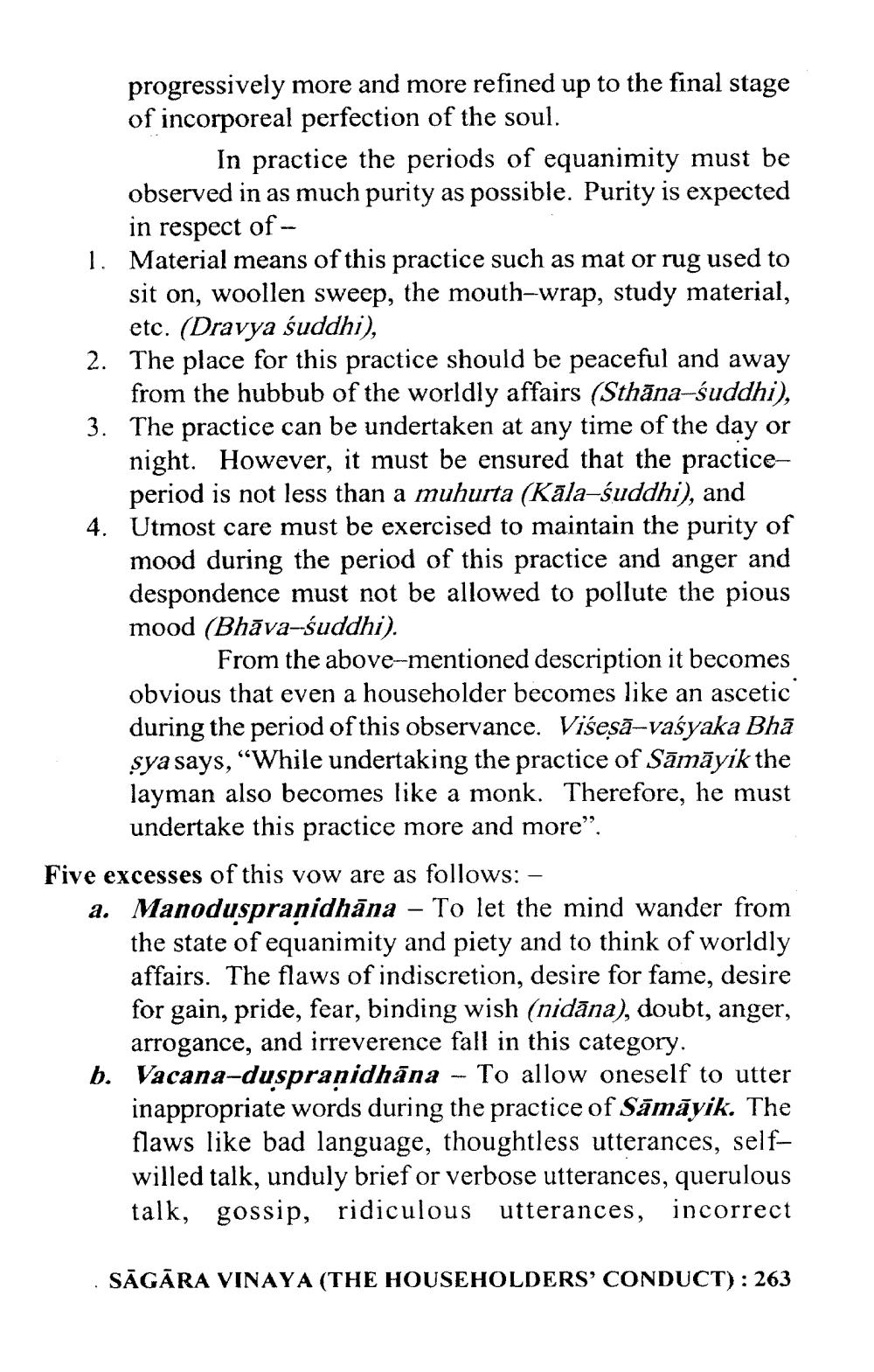________________
progressively more and more refined up to the final stage of incorporeal perfection of the soul.
In practice the periods of equanimity must be observed in as much purity as possible. Purity is expected
in respect of - 1. Material means of this practice such as mat or rug used to
sit on, woollen sweep, the mouth-wrap, study material,
etc. (Dravya śuddhi), 2. The place for this practice should be peaceful and away
from the hubbub of the worldly affairs (Sthāna-śuddhi), 3. The practice can be undertaken at any time of the day or
night. However, it must be ensured that the practiceperiod is not less than a muhurta (Kāla-śuddhi), and Utmost care must be exercised to maintain the purity of mood during the period of this practice and anger and despondence must not be allowed to pollute the pious mood (Bhāva-śuddhi).
From the above-mentioned description it becomes obvious that even a householder becomes like an ascetic during the period of this observance. Višesā-vaśyaka Bhā sya says, “While undertaking the practice of Sāmāyik the layman also becomes like a monk. Therefore, he must
undertake this practice more and more”. Five excesses of this vow are as follows: - a. Manoduspranidhāna – To let the mind wander from
the state of equanimity and piety and to think of worldly affairs. The flaws of indiscretion, desire for fame, desire for gain, pride, fear, binding wish (nidāna), doubt, anger,
arrogance, and irreverence fall in this category. b. Vacana-duspranidhāna - To allow oneself to utter
inappropriate words during the practice of Sāmāyik. The flaws like bad language, thoughtless utterances, selfwilled talk, unduly brief or verbose utterances, querulous talk, gossip, ridiculous utterances, incorrect
SĀGĀRA VINAYA (THE HOUSEHOLDERS' CONDUCT): 263




